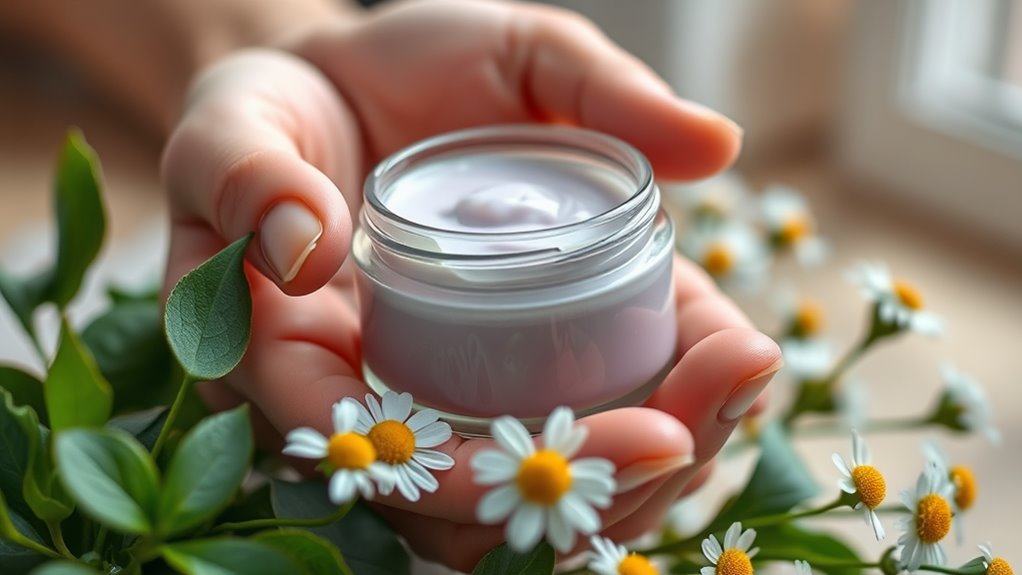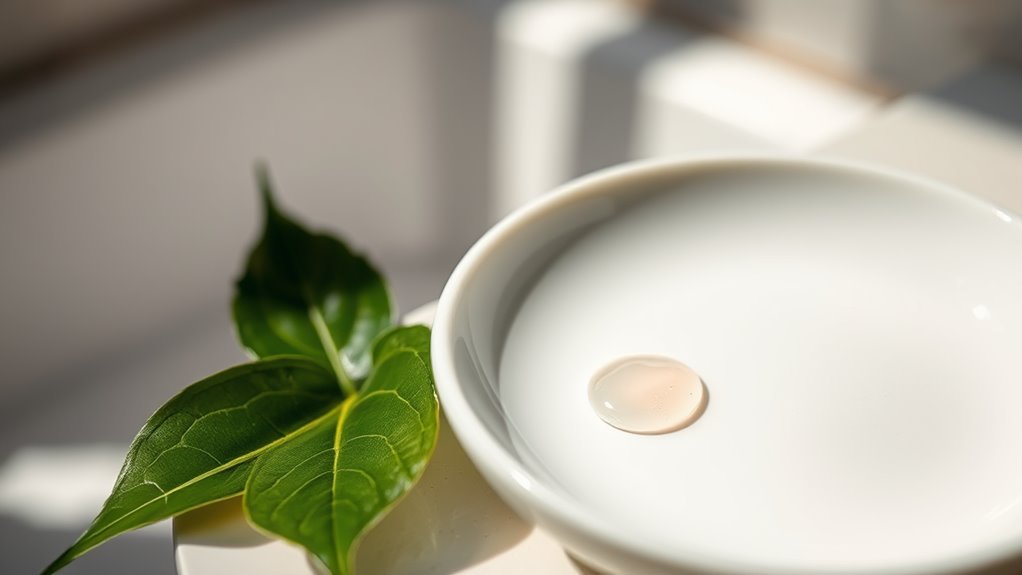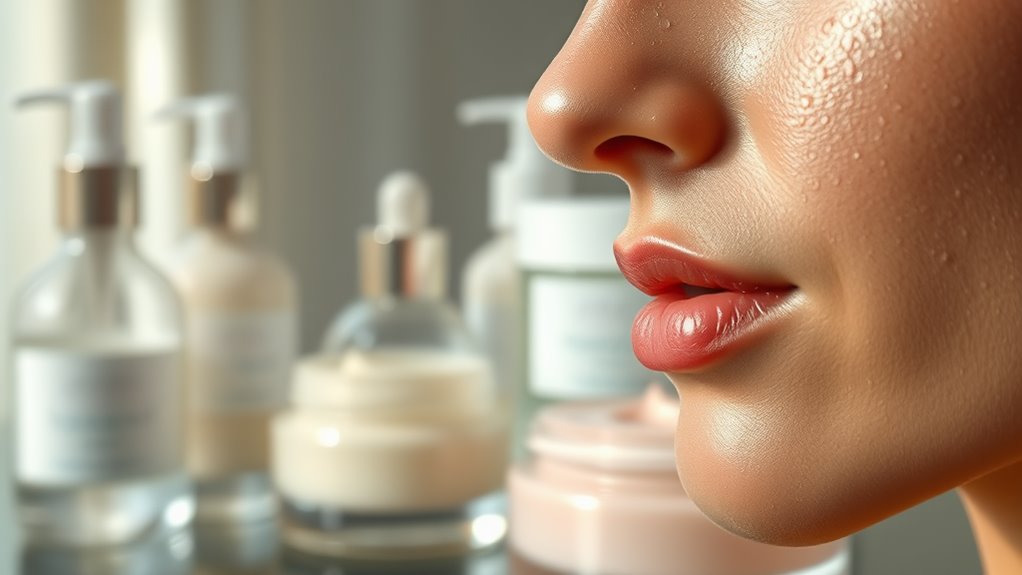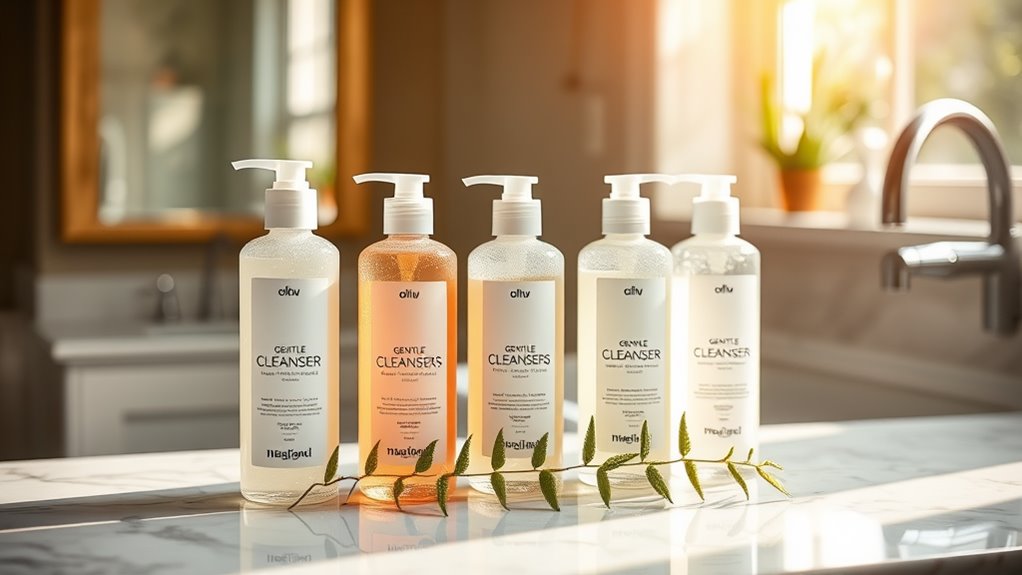What Your Skin Needs After an Irritation-A Guide to Healing
After experiencing skin irritation, you might feel frustrated and unsure about what to do next. It’s essential to focus on recovery and identify any potential triggers. By eliminating irritating products and opting for soothing, hydrating moisturizers, you can start the healing process. But that’s just the beginning. Understanding how to support your skin effectively can lead to lasting results, and there are several key steps to evaluate.
Key Takeaways
- Identify and eliminate potential irritants from your skincare routine to pinpoint the cause of irritation.
- Focus on hydration by applying a gentle, fragrance-free moisturizer with calming ingredients like aloe vera.
- Choose suitable products designed for sensitive skin, avoiding alcohol and strong actives to minimize irritation.
- Allow your skin to breathe by taking a break from makeup and heavy products, while prioritizing sun protection.
- Support recovery from within with a balanced diet rich in antioxidants and adequate hydration to enhance skin healing.
Skin Care Tips for Post-Irritation Recovery
When your skin faces irritation, whether from an allergic reaction, harsh products, or environmental factors, it can feel uncomfortable and frustrating. Understanding what your skin needs after irritation is vital for sensitive skin recovery.
First, you should analyze the cause of the irritation. If you’ve recently introduced a new product into your routine, it might be wise to eliminate it temporarily. This helps you pinpoint the culprit and avoid further damage.
Next, focus on hydration. Your skin’s barrier is likely compromised, making it essential to apply a gentle moisturizer that contains calming ingredients like aloe vera or chamomile. These components not only soothe but also promote healing. Proper hydration is crucial for sensitive skin types, as it helps restore the skin barrier and prevent further irritation.
You may want to experiment with products that are fragrance-free and formulated specifically for sensitive skin. Avoid anything with alcohol or strong actives until your skin stabilizes.
Moreover, give your skin a break from makeup and other heavy products. Allowing your skin to breathe can greatly enhance the recovery process. During this time, prioritize sun protection. Use a broad-spectrum sunscreen with a high SPF to shield your vulnerable skin from harmful UV rays.
In addition to topical treatments, don’t underestimate the importance of your diet. Incorporate foods rich in antioxidants, like berries and leafy greens, to bolster your skin’s defenses from within. Hydrate adequately by drinking plenty of water, as this can aid in your skin’s recovery.
Lastly, be patient. Sensitive skin recovery can take time, but by following these steps, you’ll create an environment conducive to healing. With care and attention, your skin will regain its balance and resilience, emerging stronger than before.





